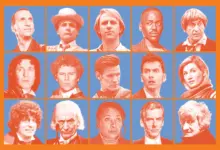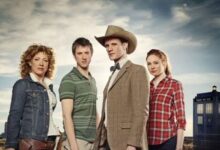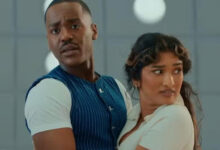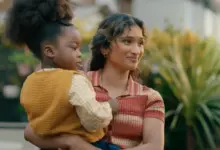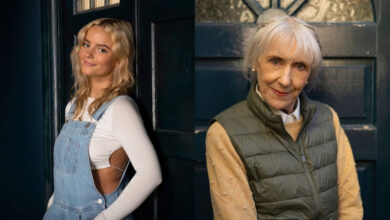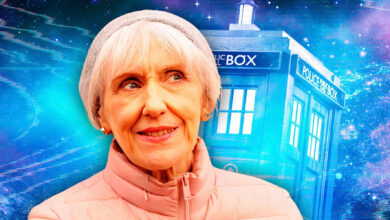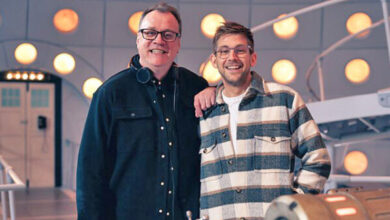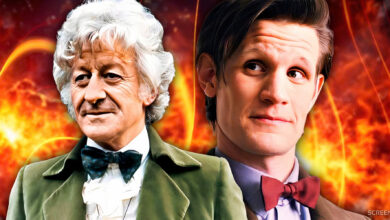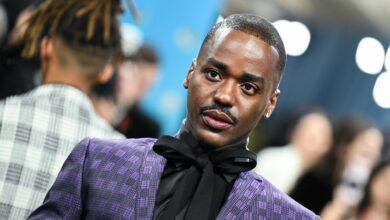‘Lucky Day’ writer reveals Fourth Doctor call-back and teases the future of UNIT
Pete McTighe, the man behind the fourth episode of Season 2, discusses the latest instalment of Doctor Who and its forthcoming spin-off, The War Between the Land and the Sea…
Lucky Day sees the return of former companion Ruby Sunday and her allies at UNIT as they face an all-new threat. The episode also welcomes back writer Pete McTighe to the Whoniverse, previously known for his work on Thirteenth Doctor adventures Kerblam! and Praxeus. McTighe is the showrunner on the forthcoming Doctor Who spin-off series featuring UNIT, The War Between the Land and the Sea – but more on that later.
We spoke to Pete about his experiences writing the episode, being on-set for filming, the inspiration behind characters like Conrad Clark, as well as what’s next for Kate Lethbridge-Stewart and UNIT. Spoilers for Lucky Day below!
Lucky Day is now streaming on BBC iPlayer in the UK and Disney+ where available.
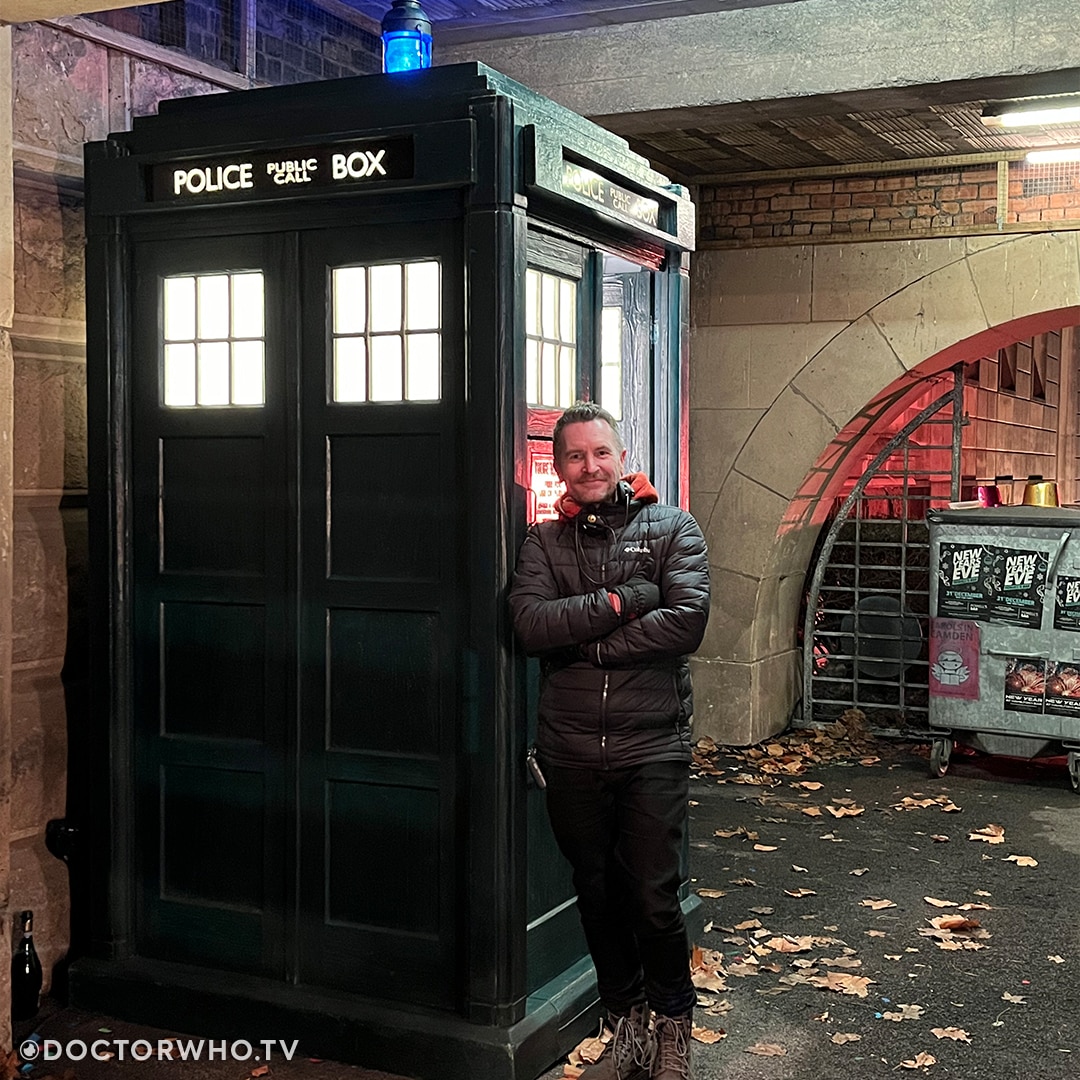
Welcome back to the Whoniverse! How did your involvement in Season 2 come about?
When Russell took over as Doctor Who showrunner, we Facetimed and he told me he’d love to have me back at some stage, which was such an exciting prospect – we’ve known each other for years and worked together on a show that hasn’t seen the light of day yet (one day!) Eventually, the stars aligned and we discussed an idea for an episode that focused on the character of Ruby which of course became Lucky Day.
I think we had a 45-minute initial chat over Zoom, because I was on holiday in Australia at the time. Russell was incredibly generous and gave me a huge amount of freedom to take the idea and run with it… this was in 2023, before the 60th specials had aired, before anything of the Fifteenth Doctor had been seen yet. So to prep for writing the script, I had this amazing week, where I was sent twelve brand new episodes of Doctor Who to watch starring David Tennant and Ncuti Gatwa. I watched two a day, it was bliss! And obviously I was paying particular attention to Ruby Sunday and how Millie was embodying that role.
After that, the script was written pretty quickly, Russell was happy and we were off! The episode was shot in the first recording block of the season late that year, alongside The Robot Revolution.
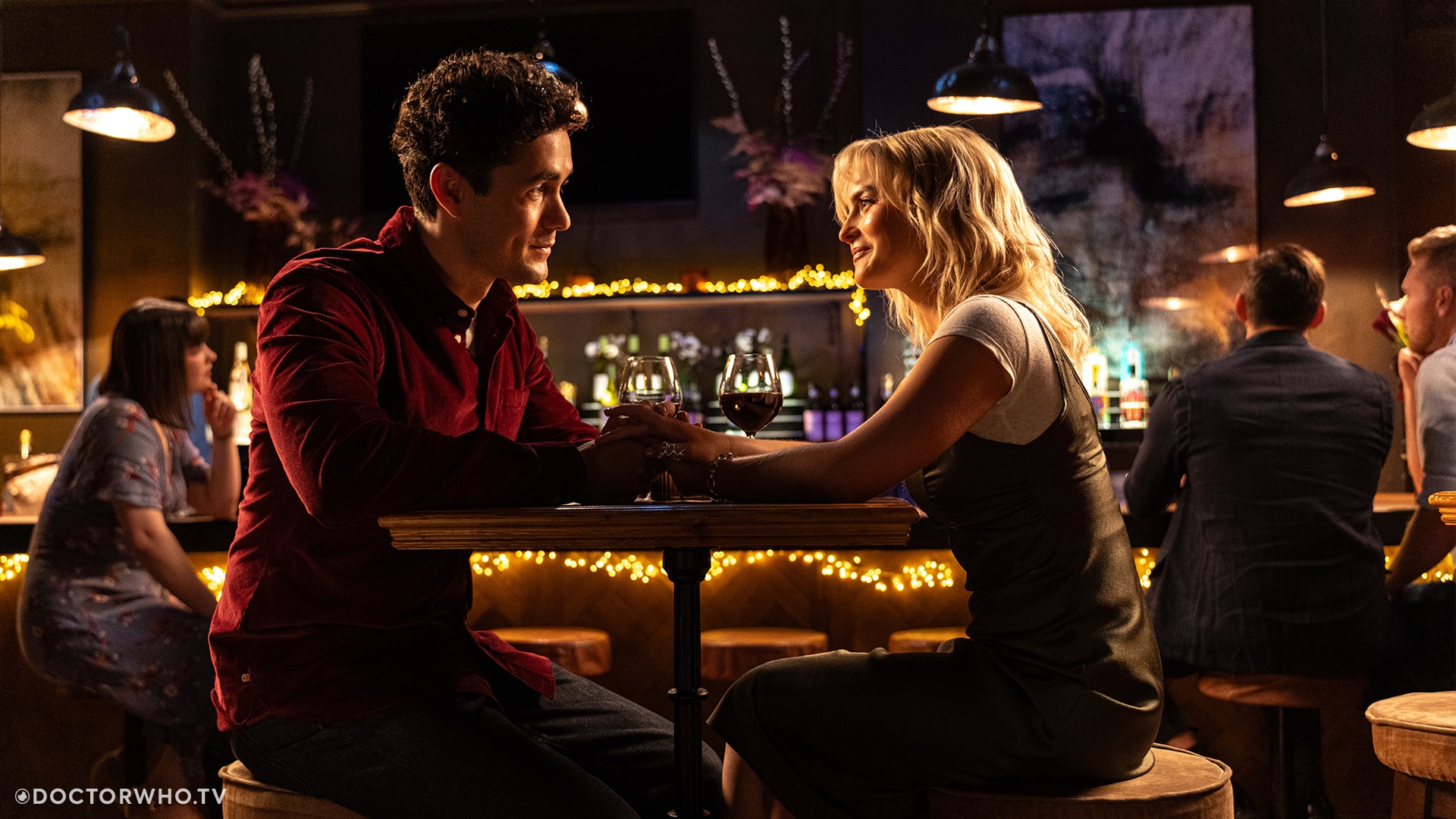
Lucky Day follows Ruby Sunday in her post-TARDIS life. How has she changed as a character since parting ways with the Doctor?
What I love about this story is that it examines Ruby from a place of utterly real psychological truth. You absolutely would have PTSD after everything she went through in her first season. You’d be triggered by all sorts of things. You’d not be able to confide in anyone, cos they’d think you were insane. All those mind-blowing events she experienced kind of had to be shut away in a box and not talked about – because she also had some other, very personal, mind-blowing things to deal with, like forming a relationship with her birth parents. I mean, that’s a lot.
So for Ruby, meeting someone in Conrad who she feels she can open up to and share her experiences with, that’s such a relief for her. And, obviously, such a brutal gut-punch of a betrayal when it turns out he’s been playing her. I feel like Ruby’s grown up a lot since we left her, but during this episode she grows up even more, she finally comes to terms with the psychological impact that last year had on her, takes ownership of that trauma, and starts to move on with her life.
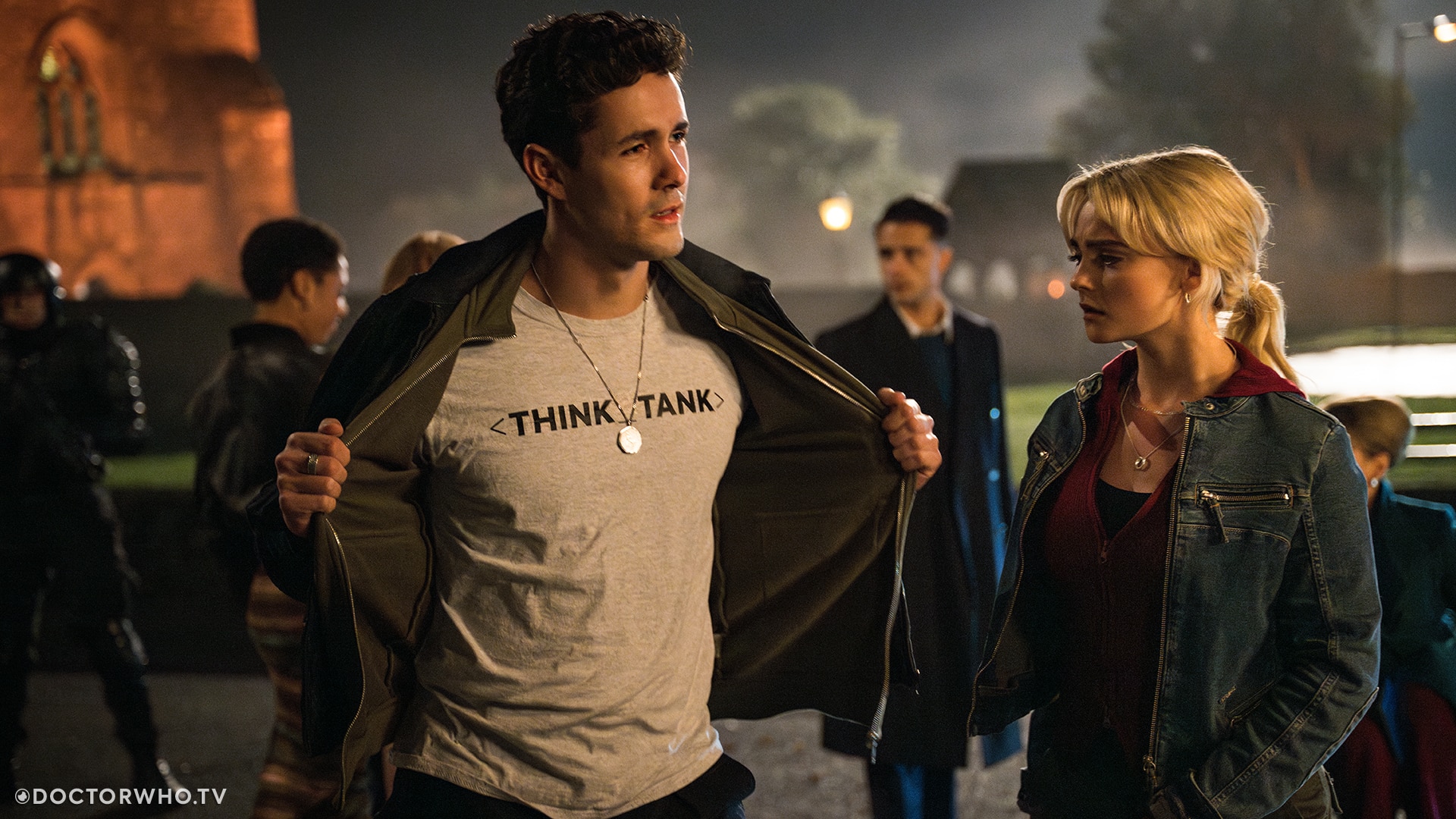
UNIT’s greatest challenge in this episode is facing public distrust and misinformation. What inspired the rise of Think Tank?
Well, I mean look around. We’re living in a crazy world where misinformation has become currency and distrust is rife. That speech I wrote for the Doctor at the end of the episode – he says everything I wanted to say. I refer you to the Doctor.
And for classic fans, yes, ‘Think Tank’ is a deliberate call-back to the story Robot from 1975. I figured Conrad did his research, and stole the name of a previous organisation that opposed and clashed with UNIT.
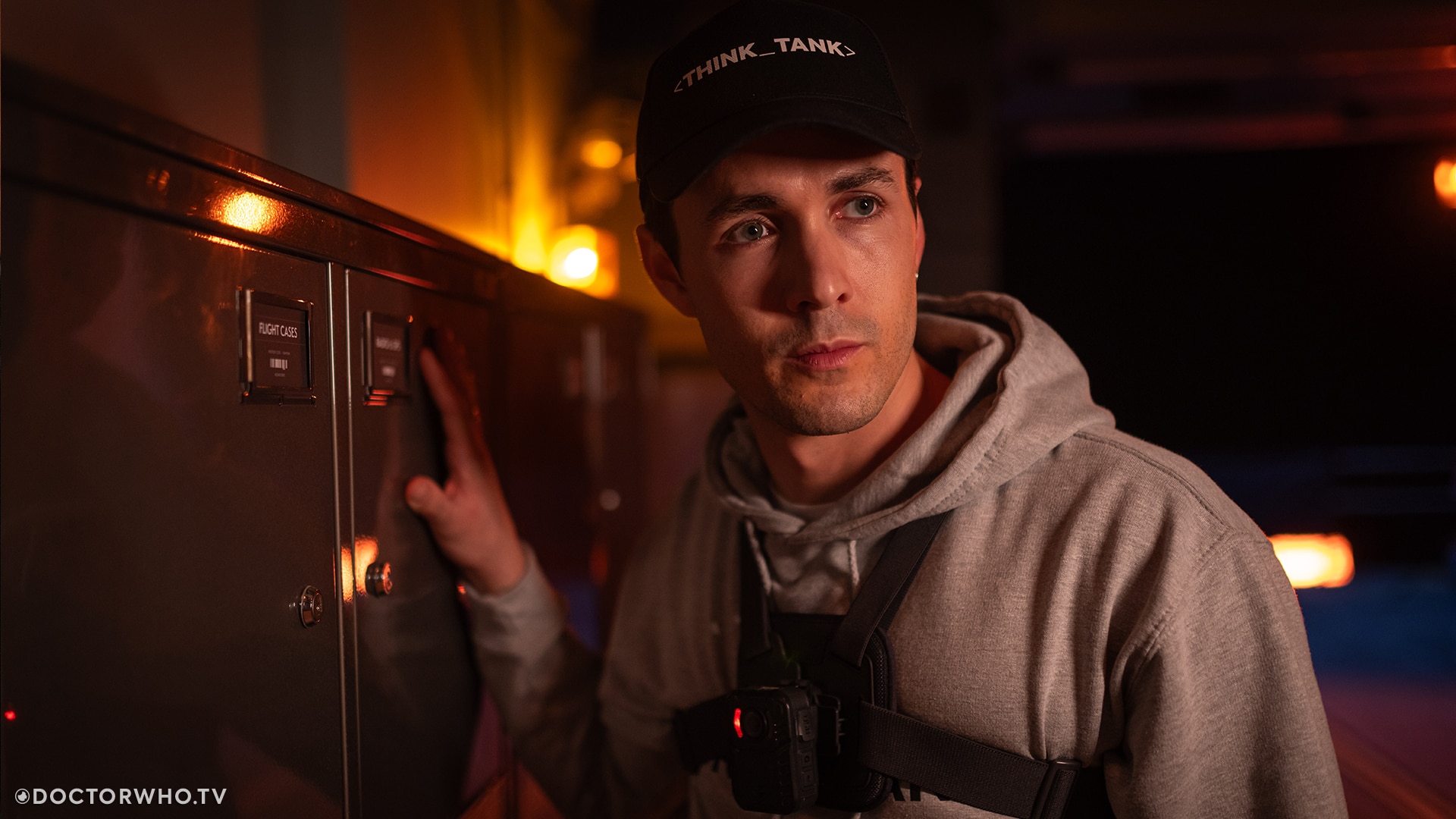
How enjoyable was it to write a villain like Conrad Clark, and what was it like working with guest star Jonah Hauer-King?
I loved writing Conrad. It was delicious, knowing where the story was going and being able to relish the lead-up to that reveal. The episode was structured very deliberately into three acts with a genre change at every major turn; a rom-com first, then a gothic horror, then a contemporary thriller. What a gift, to be able to switch genres like that in a single episode. But the character dictating those swings of genre was Conrad, and he had to be absolutely believable at every turn.
Getting Jonah to play the role was just a dream; I mean, the man’s a film star. I was dubious that we’d get him but we sent him the script, and lucky for us he loved it and came onboard very quickly. He was so perfect, and such a fantastic presence on set. To see him step into a terrifying machine like Doctor Who with such confidence, skill, preparation and enthusiasm was just a joy to watch. He and Millie worked so hard, and were so committed to bringing the best out of this story.
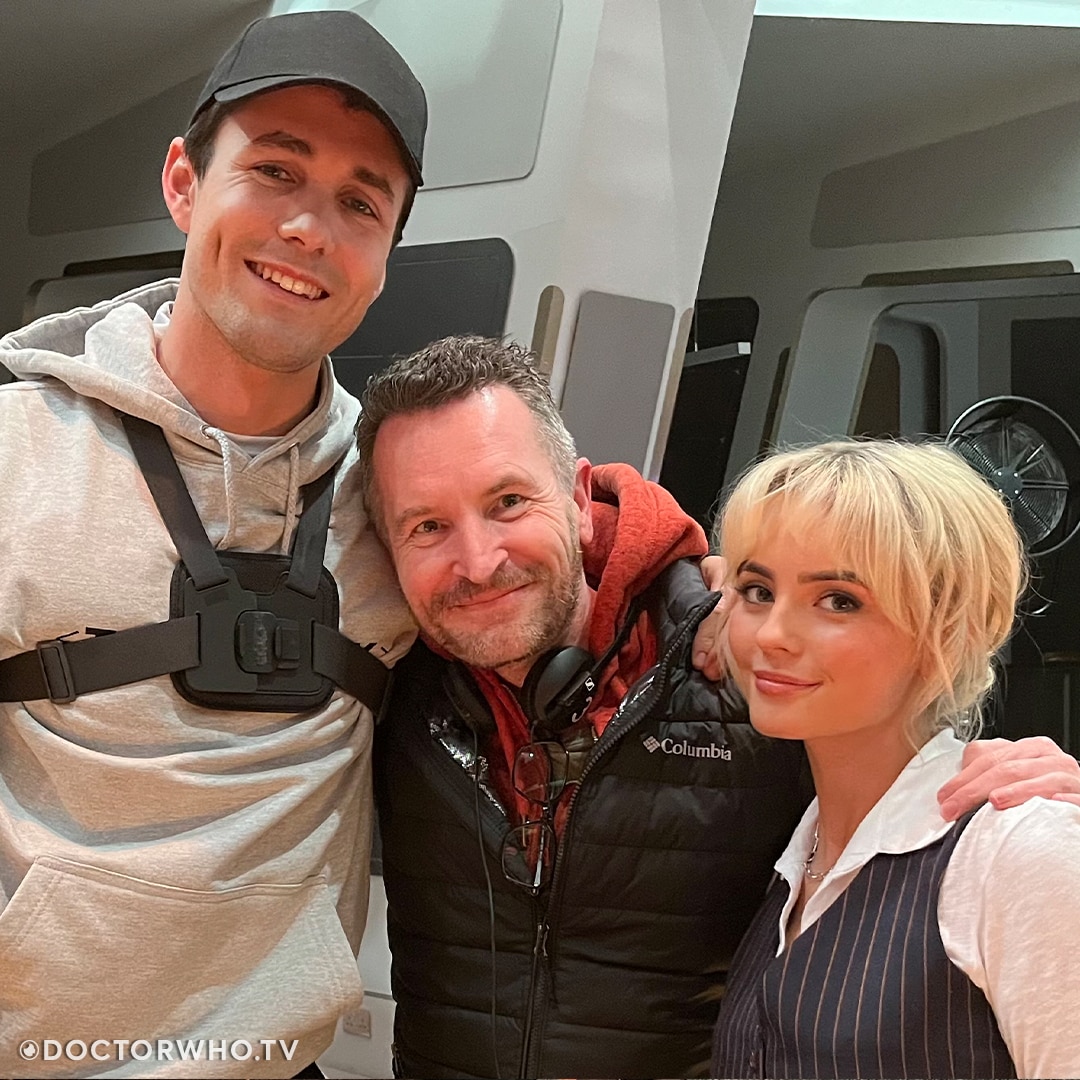
You were on set for every day of filming – any stories to tell?
Oh lots, but here’s my favourite… we were shooting the big climactic UNIT Ops Room scene, where the helipad doors open and the Shreek’s containment unit is revealed. Which meant we needed big wind machines. So in they came, these huge industrial fans. At the right moment, the technicians turned them on, a massive gust of wind ripped through the set… and suddenly, it was raining rose petals! All those long-forgotten red petals from the dance sequence in The Giggle had been stuck in the studio rafters for over a year and came drifting down into the set. It was hilarious, like the Toymaker was still haunting us. Jemma Redgrave, bless her, scooped up a pocketful and handed them to me after the scene as a memento. I’ve kept them.
Oh, and on the actual 60th anniversary, 23rd November 2023, we were on set in the TARDIS, shooting the big showdown between the Doctor and Conrad. Russell made a speech and we had a giant police-box cake. What a day, it was like Christmas for me.
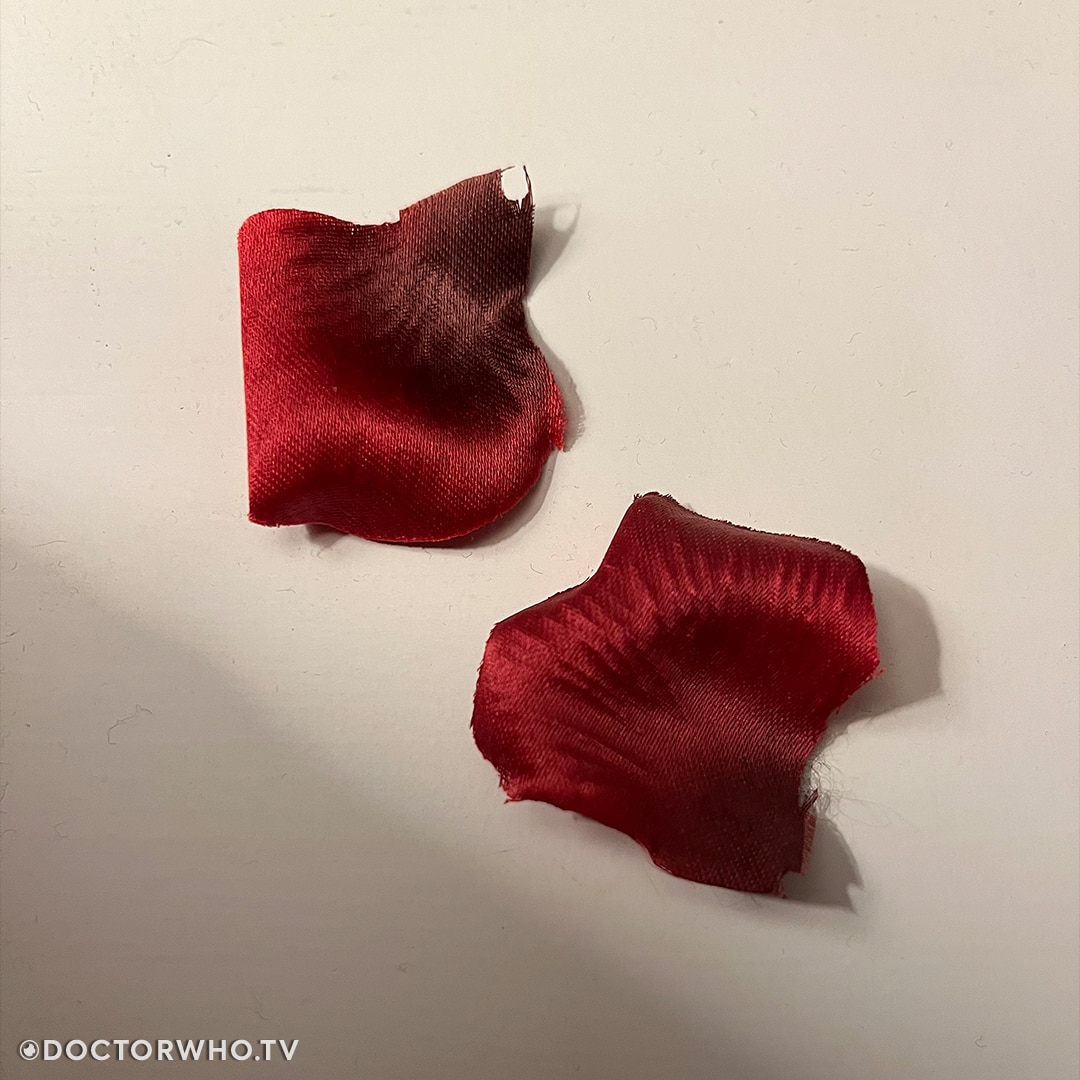
We also get to see a little bit more of how UNIT operates in the absence of the Doctor. What’s different about writing a Doctor Who story with more of an ensemble cast?
I actually really enjoyed writing a story where the Doctor was largely absent, I surprised myself. Because instantly, when he’s not around, the stakes are higher. The situation is way more dangerous if he’s not there to swoop in and save the day. It means ordinary people – like Ruby, like Kate – have to become extraordinary in the face of impossible challenges.
I mean, look at the extremes that Kate is driven to by the end of the episode. Her entire organisation – her father’s legacy – was under threat, and not a threat they’re used to. This wasn’t the Kraals – but something much more dangerous and insidious and damaging. And how we leave her in this episode, and at the end of the season, really sets her up for what’s to come in The War Between the Land and the Sea.
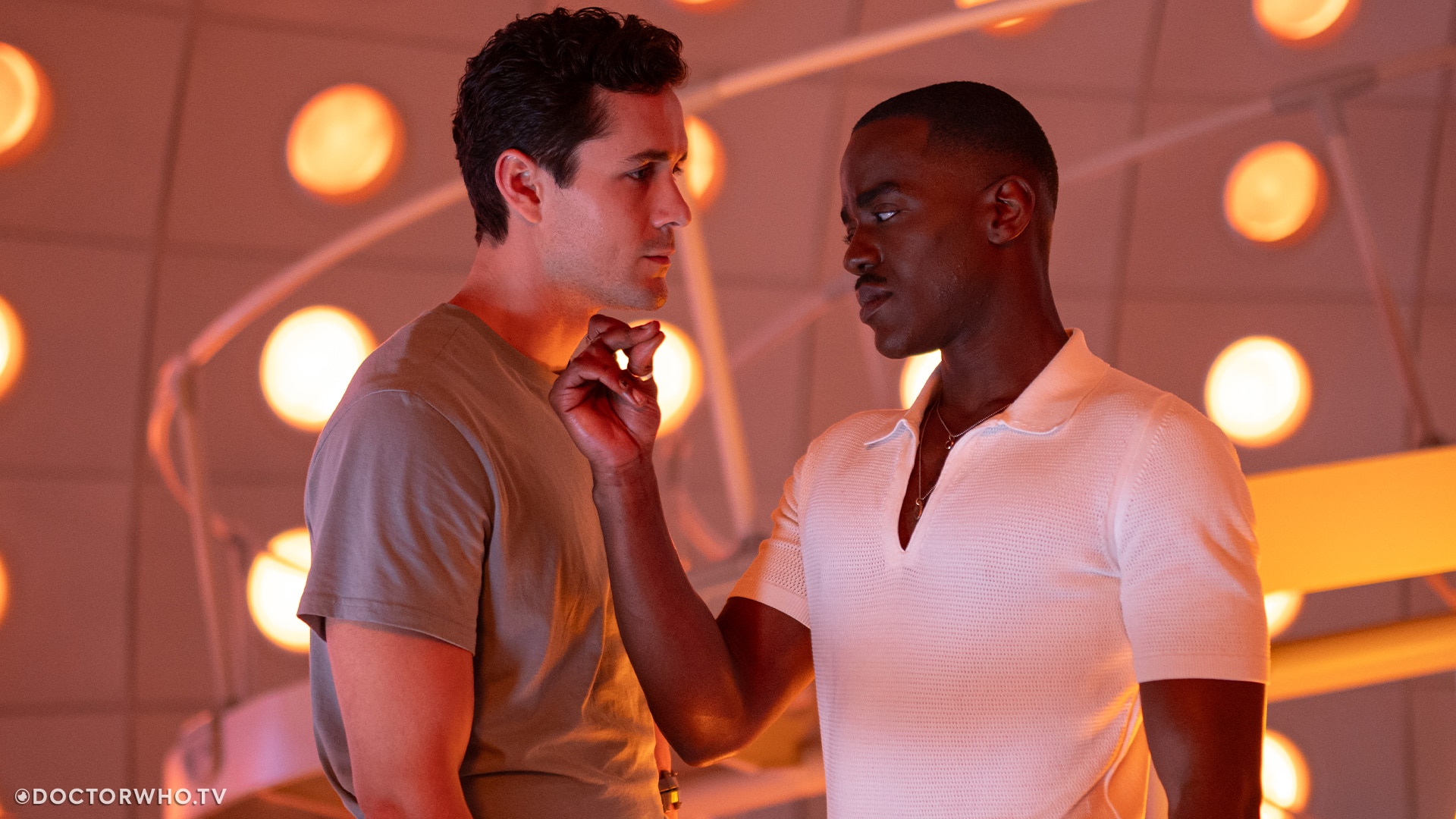
As well as your work on the TV series and The War Between the Land and the Sea, some of your writing credits within the greater Whoniverse include Tales of the TARDIS and some very special features for the Collection! Which characters from Doctor Who history have been your favourite to write for?
Every one of those projects has been a dream come true. Literally, since I was five, I’ve been imagining Doctor Who TV stories. I have a bank of hundreds of them, probably. Doctor Who is so incredibly rich when it comes to its history and its characters, so it’s impossible and unfair to pick a favourite.
I love writing Kate Lethbridge-Stewart, but also Ace. Also Vicki. Also Leela. Also the Mara, the Daleks, the Seventh Doctor, the Thirteenth, The Fifteenth. Mel! Nyssa! Shirley! Christofer Ibrahim. Jamie and Zoe. Ruby, Belinda. But I also love writing the new; Conrad, and Cherry Sunday and Mrs Flood and brilliant characters yet to be announced for The War Between. And more to come if Russell will have me back – I love the history of Doctor Who with all my heart, but I’m excited by the future, the stories we haven’t told yet.
